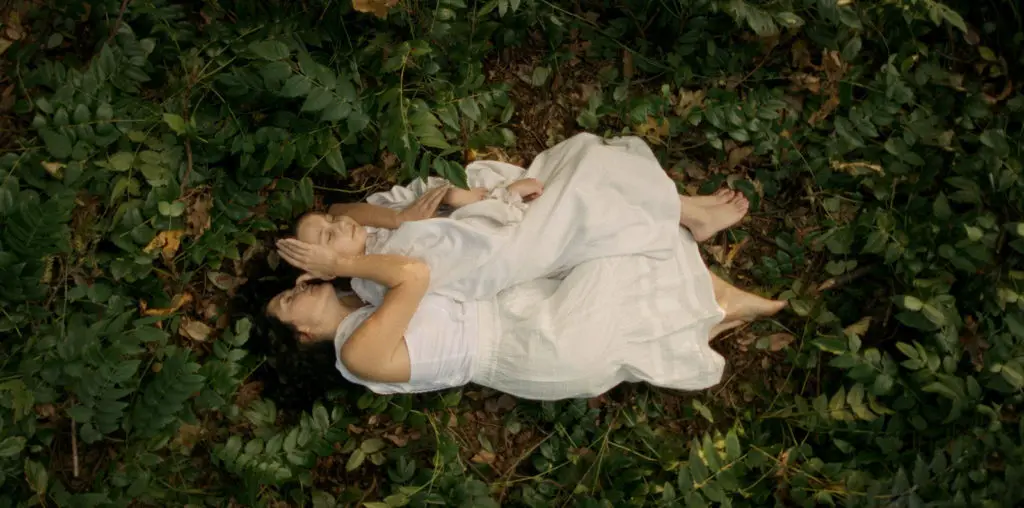
Derek Quint’s short experimental film Salome is based on the Oscar Wilde play of the same name. The general aesthetic of the piece is best described as black, white and fluffy. Played as a silent film, with dialogue presented via text cards between imagery, the power of the piece comes from the musical score and the way it mixes with the experimental imagery, as well as through the emotional interpretation of the overall story.
The basic story is this: Beautiful Salome (Emily Gajek) falls for the prophet Jokanaan (Ryan Tiderington), but Jokanaan spurns her advances due to his religious conviction that women brought evil into the world, and therefore he’ll have nothing to do with them. Salome vows that she will kiss Jokanaan, despite his protests, and events are set in motion which will end with tragic consequences.
Now, I never read the Oscar Wilde play, so I don’t know anything about it beyond a passing knowledge of Biblical trivia (Jokanaan is John the Baptist). To that end, I can’t tell you if this adaptation does justice to, elevates or damages the source material. Not that it would really matter, since my focus is entirely on what is presented to me in this piece, but I do know the urge to compare that will come upon those who are familiar with the original play, or the Biblical tale and implications, and therefore would have those questions.
As an experimental film, Salome has some truly pause-worthy frames (I’m a sucker for minimalist animation), and other times it feels like a bunch of people dressed in toilet paper, living in a toilet paper-covered world. It depends on how much you let yourself be pulled into the experimental nature of the film, and for me that interest went back and forth.
Since it lives in its own silent film trappings, it was never going to look much better than the best of that era, but at least it’s an aesthetic choice and not, say, someone with a poor camera package behaving uninspired. For me, the strength comes from the musical score and then the audience’s own interpretation of the tragedy at the core of the film. The rest of it stumbles a bit, but not so much as to overshadow the entire experience.
This film was submitted for review through our Submission for Review system. If you have a film you’d like us to see, and we aren’t already looking into it on our own, you too can utilize this service.

